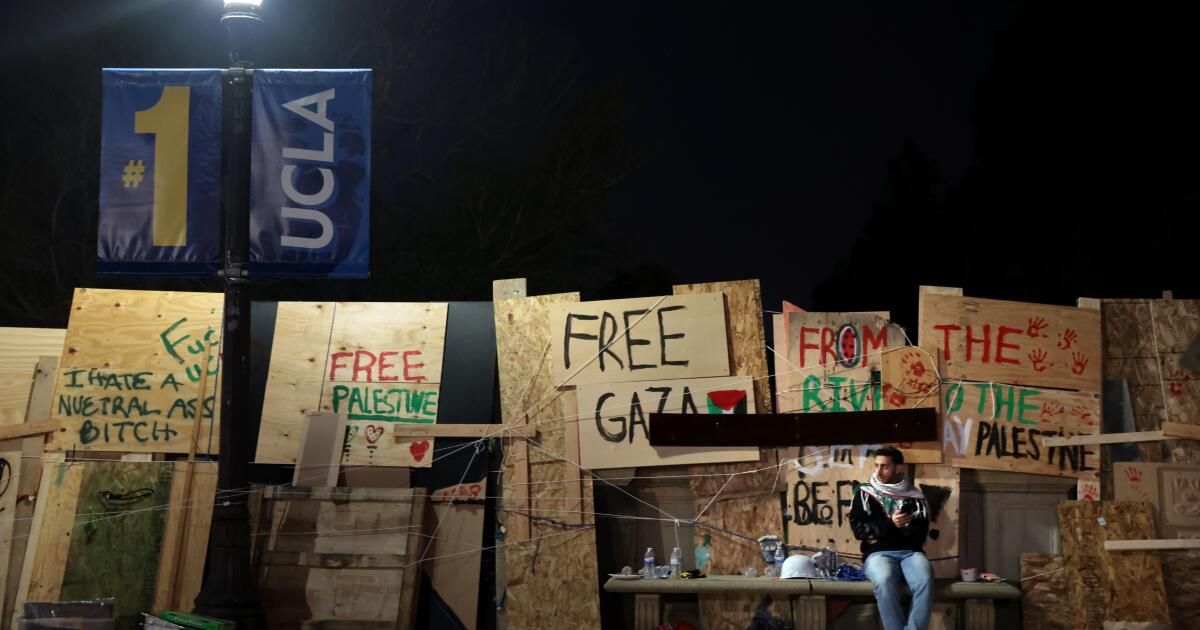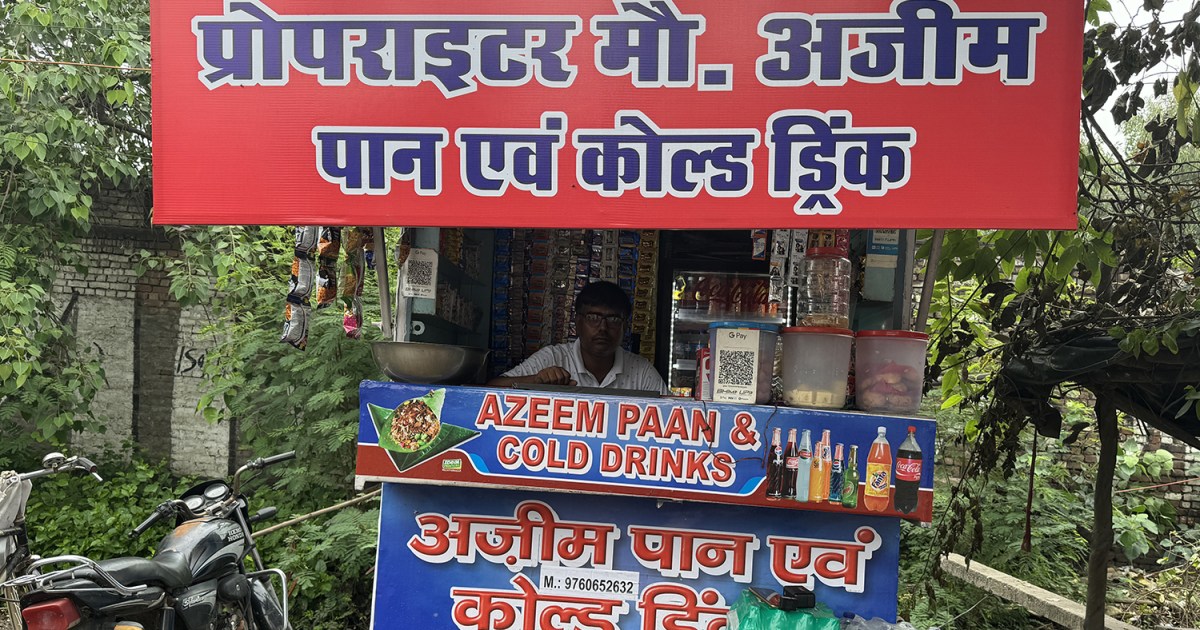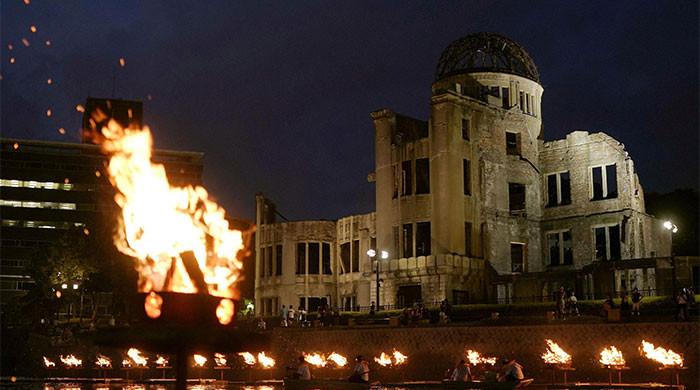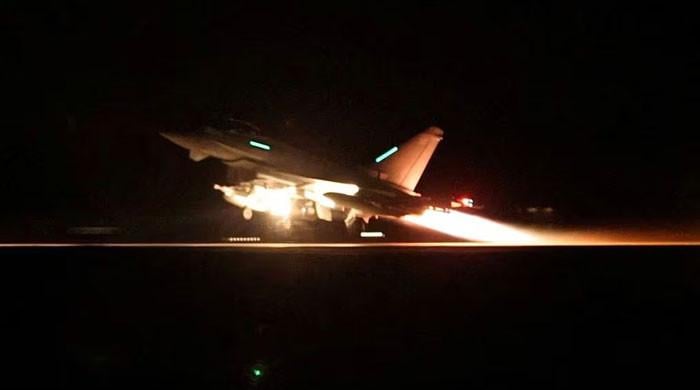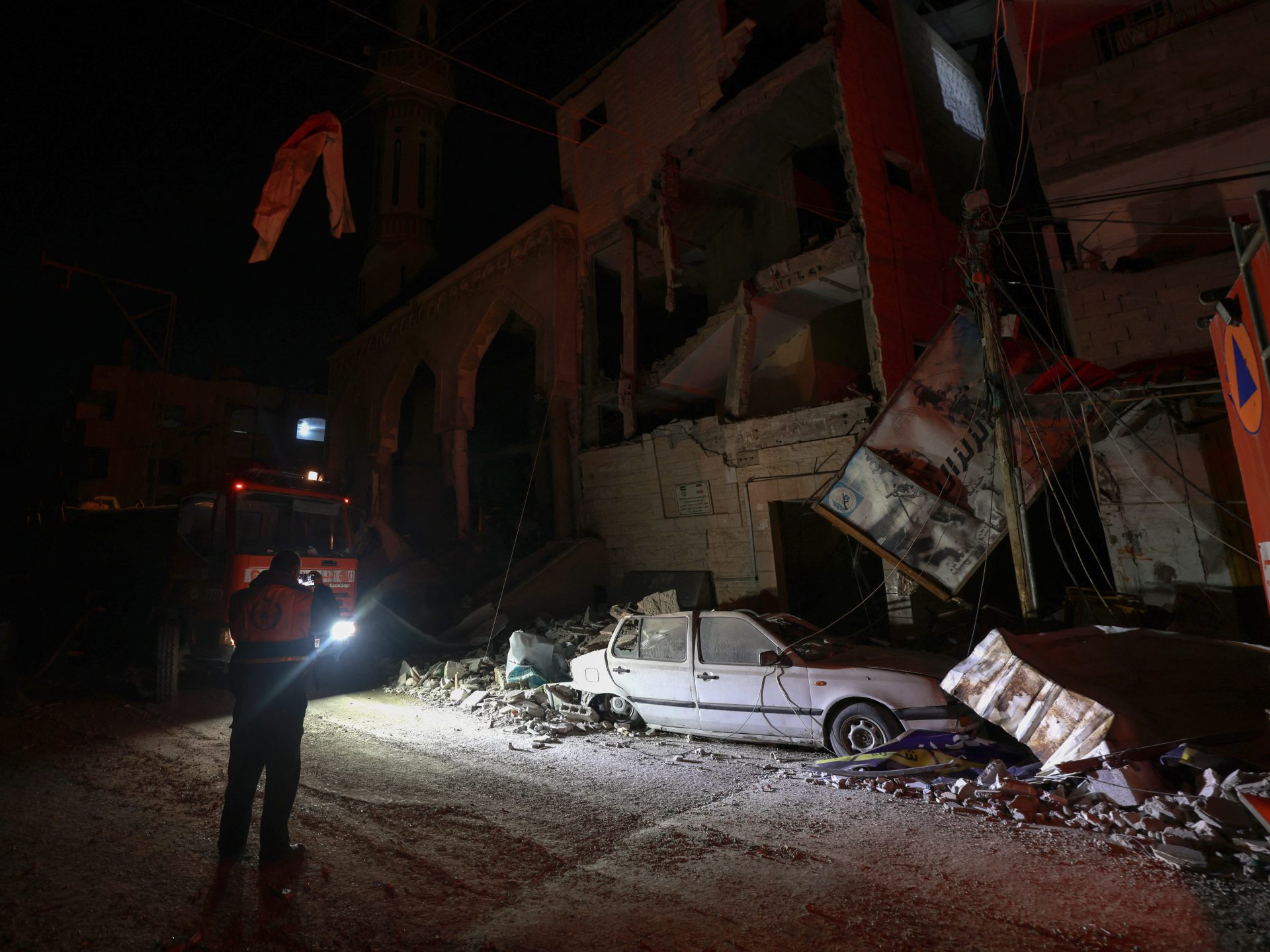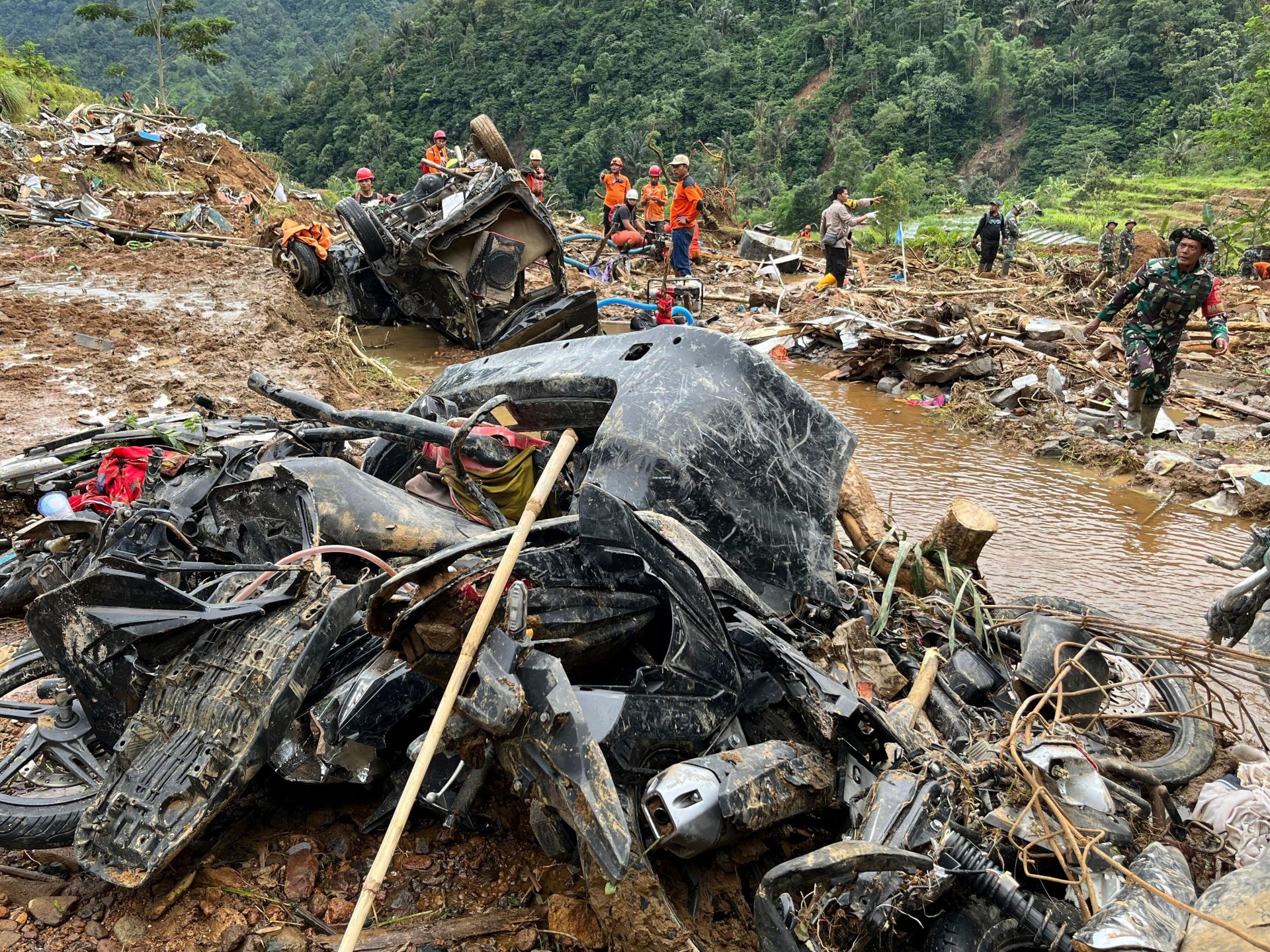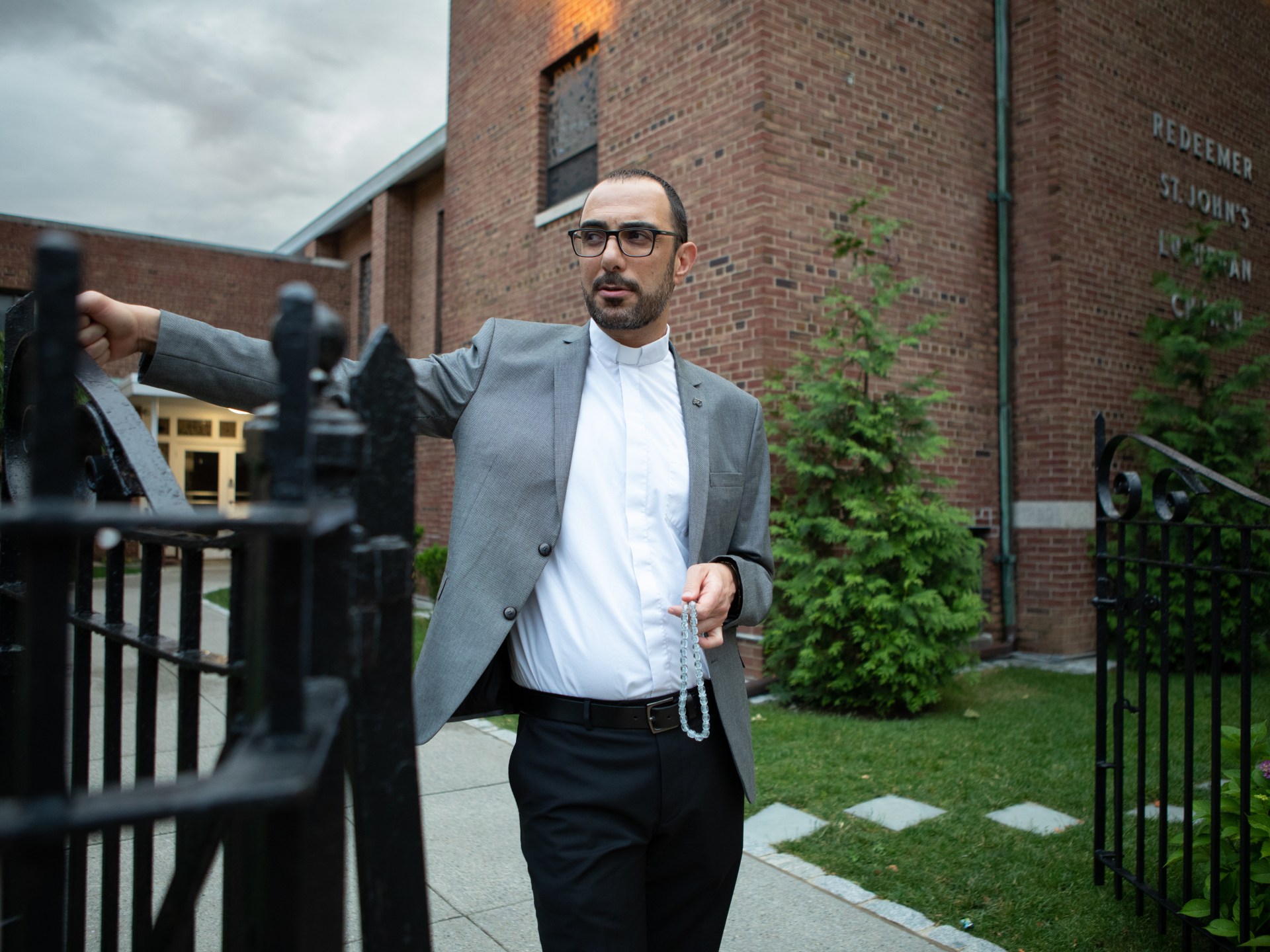People across the Gaza Strip sent messages of gratitude to protesters on American campuses, thanking them for their protests against War between Israel and Hamas.
Children, parents and medical staff gathered in the courtyard before Al Aqsa Martyrs Hospital in central Gaza on Wednesday, with many of them displaying banners with university insignia that read “Thank you for supporting our cause.”
Others brandished signs that read: “Their voices pierce the wall of silence and reach the victims in Gaza,” “The massacre of children in gaza “We must stop” and “Palestine is everywhere.”
In recent days, as protests and camps have spread to dozens of American universities, people in Gaza have taken note of the outpouring of solidarity, both in the United States and abroad.
They, in turn, have responded (on social media, at rallies, in videos, with words scrawled on tents) with their own messages of support. Many see the protests as a positive omen in a time of relentless desolation in Gaza.
At another event, in Deir al Balah, others hoped similar protests would spread across European and Arab countries.
“This was a meeting of gratitude and pride for the efforts of students at American universities,” said Baraa Safi, an English professor interviewed by a local station on Wednesday.
“It makes a big difference in our lives and gives us hope that people will still listen to us; “That people want to help us, support us and put an end to the war that we experience every day.”
American universities have been shaken since mid-April by demonstrations demanding that university endowments divest from investments and companies linked to Israel and calling on Israel to end its bombings and ground attacks on Palestinian territory.
Israel's war against the militant group Hamas It has lasted almost seven months and has killed more than 34,000 people and injured more than 77,000, according to Hamas health authorities in Gaza. The figures do not distinguish between civilians and combatants, but officials, aid groups and activists say the majority of victims are women and children.
Israel launched its military offensive in the Gaza Strip after the October 7 attackwhen Hamas operatives stormed more than 20 sites in southern Israel, killing approximately 1,200 people and taking around 250 hostages. Just over half of the hostages are believed to remain in Gaza, including 34 presumed dead by Israeli authorities.
Israel's ambassador to the United Nations characterized the protests at American universities as “the murderous cries of pro-Palestinian mobs” and lambasted universities for allowing “Nazi-like behavior.”
“We always knew that Hamas was hiding in schools” Gilad Erdan he said in a speech to the UN General Assembly on Wednesday. “We just didn't realize that Gaza is not just about schools. There are also Harvard, Columbia and many elite universities.”
He also accused the UN of spreading “anti-Israel vitriol” and said the organization’s “days were numbered.”
The protests in the United States have added to domestic and international pressure on President Biden to push for a deal between Hamas and Israel that would end the fighting and free hostages and other detainees.
On Wednesday, Secretary of State Antony J. Blinken said “there is a proposal on the table” and “now is the time” to reach a deal. He blamed Hamas for the delay, a charge the group's leaders denied.
Thursday, Hamas said its negotiating team would return to Egypt soon for additional conversations and a response to a proposal made this week.
The group's head, Ismail Haniyeh, said in a phone call Thursday to Qatar's emir, Sheikh Tamim bin Hamad Al Thani, that Hamas was studying the ceasefire proposal in a “positive spirit.”
Negotiations have stumbled over whether a ceasefire will hold and whether displaced people will be able to return to their homes in Gaza. Mediators have offered a 40-day ceasefire and an exchange of Israeli hostages and many Palestinian detainees.

